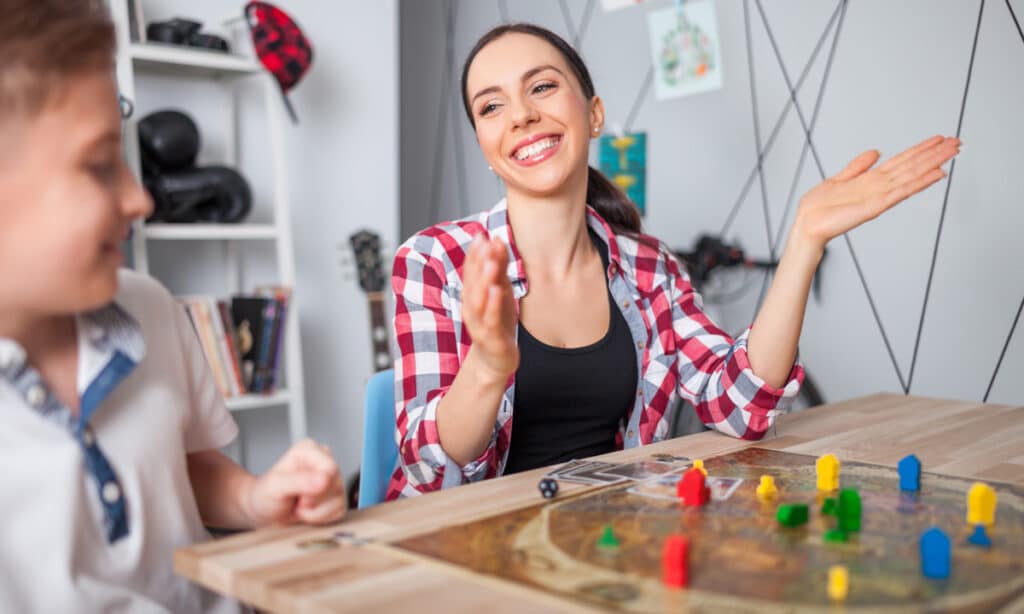It’s no secret that technology like the internet, smartphones, laptops, and tablets have transformed how we interact with the world. Most of us use some form of screen to work, chat with friends, or entertain ourselves each day.
Although screens have become an integral part of our lives, excessive screen time can potentially cause people to experience depression, anxiety, sleep disorders, and other mental health issues. In this article, we will talk about how too much screen time affects mental health, and offer tips on how to balance screen time in your daily life.
Screen Time & Mental Health Effects
Screens are hard to escape in the modern world. They’re in our homes, restaurants, stores, even our pockets. This omnipresence of screens has raised concerns about the negative effects they have on people of all ages. People who are glued to screens all day often experience prolonged feelings of anxiety and depression. They may sleep poorly, too, as the blue light emitted by most screens suppresses the production of melatonin.
Research shows that more hours of screen time are associated with lower psychological well-being and quality of life in the long term. Excessive screen time can also cause diminished cognitive abilities, reduced attention span, and impaired learning outcomes – especially in children.
Additionally, screens often act as a barrier to physical activity and face-to-face social interactions. This can lead to sedentary behavior and feelings of isolation. Relationships may be affected with increased screen time, leading to poor emotional regulation and lower ability to self-control. Signs of this might look like arguing too much, not staying calm, and being difficult to get along with.
It’s essential for all of us to be cognizant of our screen time habits and how they affect our well-being. Here are some tips to find a healthy balance of technology use in the digital age.

Tips to Balance Screen Time
1. Set a Schedule
One of the best ways to balance screen time is to create a screen time schedule. Designate specific time slots in your day for work, email, social media, and other screen-related activities. Devices like iPhones and Androids have software you can use to set time limits for certain apps. Stick to these boundaries as best you can, and you’ll likely notice an improvement in your well-being.
2. Take Frequent Breaks
Breaks are essential to maintaining control of screen time in your life. They also help reduce symptoms of digital eye strain, neck pain, and headaches. If you’re finding certain online content too overwhelming – like the news – consider removing apps from your phone or other device for a few days. This can help you refocus your energy on what you can control.
3. Be Mindful of What You Consume
There are all kinds of disturbing, inappropriate, harmful, or downright dangerous content online. Be careful of what content you interact with, to protect your mental health and your privacy. Curating your online experiences and setting parental controls for your children are both great ways to practice screen time mindfulness.

4. Get Creative
Reading, writing, practicing an instrument, playing board games, and doing art are all activities that cultivate your creativity. Taking up artistic hobbies can help you express yourself, connect with like-minded people, and improve cognition, to name only a few mental health benefits. Of course, any of these hobbies can have a digital component to it. However, the important thing is that you’re stimulating your brain – not just scrolling through a feed.
5. Prioritize Socialization
We understand it can feel like a lot of effort to leave the house and socialize. However, as social beings, it’s essential for humans to regularly connect with people they care about. Take some time to meet up with your friends, neighbors, or family at least once a week to make a meal, play a game, or simply catch up on life. You may find these interactions are a welcome respite from the virtual world. Your screens will always be there to help you decompress when you get home.
6. Seek Professional Support, If Needed
If you feel like you’re struggling with excessive screen time and it’s affecting your mental health, don’t hesitate to seek help from a professional. Addiction to technology is a common issue for many people. Mental health professionals like our team at Rural Psychiatry Associates can work with you to create a plan that emphasizes self-care, setting boundaries, and using technology in healthy ways.
As we’ve discussed throughout this blog, excessive screen time can have many downsides for our mental health. Fortunately, there are useful strategies that can help to balance our technology use and improve overall mental well-being. Following these tips can help you improve your relationship with technology, while enjoying all the benefits it has to offer.

